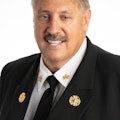I cannot tell you how many times I’ve seen it in my 33-year career – crews fail to check the equipment on the apparatus or ambulance and when they need it, it is not there or does not work.
Recently, an engine company took their apparatus to the repair shop and swapped into a different engine. Unfortunately, someone forgot to transfer the narcotics from a locked box on the engine that needed repairs to the one they were swapping into. Three days and three shifts later, someone discovered the narcotics were missing. Looking back through the records, all of the firefighter/paramedics from all three shifts signed off that the narcotics were there. It was obvious they had not checked it and merely signed the document that the narcotics were there.
Why would someone put themselves in jeopardy by signing the form that the narcotics were there when they did not check? What would have happened if a patient truly needed one of those drugs in the controlled-substance box? The patient obviously would have gone without it. Hopefully, it would not have been detrimental to the patient.
If you stand at the window at the airport and look out where the planes are parked at the ramp, you will see a pilot do a walk-around and visually inspect the plane before even climbing into cockpit. As you are getting on the plane, sometimes you will see the pilot and co-pilot going through a checklist of different items they are required to do prior to any flight. Imagine if they merely checked the boxes and signed the form without regard for whether the equipment was there or even working!
The same can be true when we get on our fire apparatus or ambulance and begin a shift. How many drivers check their fire apparatus or ambulance prior to driving it on an emergency call?
How many drivers at the start of their shift check the tires, sirens, lights or windshield wipers? It is already challenging to drive in an urgent manner and navigate through dangerous intersections, but why do so through pouring rain when your windshield wipers don’t function or they are completely useless because they need to be changed? If you work on a busy engine, truck company or ambulance, you should be checking your vehicle several times a day. Bottom line – your vehicle should be safe to drive.
What about checking vital equipment on the ambulance to make sure it is ready to go if needed? Is the oxygen in the main tank onboard the ambulance at a satisfactory level and is there enough to support a patient who needs oxygen during a transport to the hospital? Do you have all your equipment? Or did the previous shift leave some equipment at a house or on a scene during a previous call? Nothing will give you a sinking feeling like opening up a compartment door to find out you are missing a vital piece of equipment or a jump bag with essential supplies or drugs.
Not only should check to see if you have the equipment, but check whether it functions. Try getting to a scene somewhere and finding out the batteries on your monitor/defibrillator are not charged enough to deliver an electrical shock because you did not check the life left in the batteries at the start of the shift.
Try inserting an airway or doing an intubation, only to find out your airway bag was left at a hospital on the previous shift. Unless you enjoy doing mouth-to-mouth, you should always ensure your airway bag is present on the vehicle.
As I visit various fire departments, I am always amazed at how many firefighters rush to get their breakfast before they even check their self-contained breathing apparatus (SCBA) or other vital personal protective equipment (PPE). I have always been an advocate of also checking ourselves at the start of each shift. Firefighters should be checking one another’s blood pressure at a minimum each morning – especially if someone has a history of high blood pressure. Glucose and cholesterol checks are also recommended, especially if someone has diabetes or a history of high cholesterol.
Don’t ever put yourself in a position where you jeopardize your safety because you have an unsafe vehicle or unsafe or missing equipment or supplies. Don’t ever put yourself in a position where you cannot save someone’s life because your medical equipment is malfunctioning or missing. The importance of checking your vehicle, your equipment, and yourself cannot be overly stressed. Please take care of yourself and each other.
About the Author
Gary Ludwig
GARY LUDWIG has served in three fire departments over his career: St. Louis, Memphis, and Champaign, IL. His fire, EMS and rescue career spanned a total of 46 years, and he has been a paramedic for over 44 years. Ludwig served as president of the International Association of Fire Chiefs in 2019-20. He has a Master’s degree in Business and Management, has written over 500 articles for professional fire and EMS publications and is the author of seven books.
Connect with Gary
Email: [email protected]
Facebook: Gary Ludwig
Twitter: @ChiefGaryLudwig
Website: garyludwig.com
